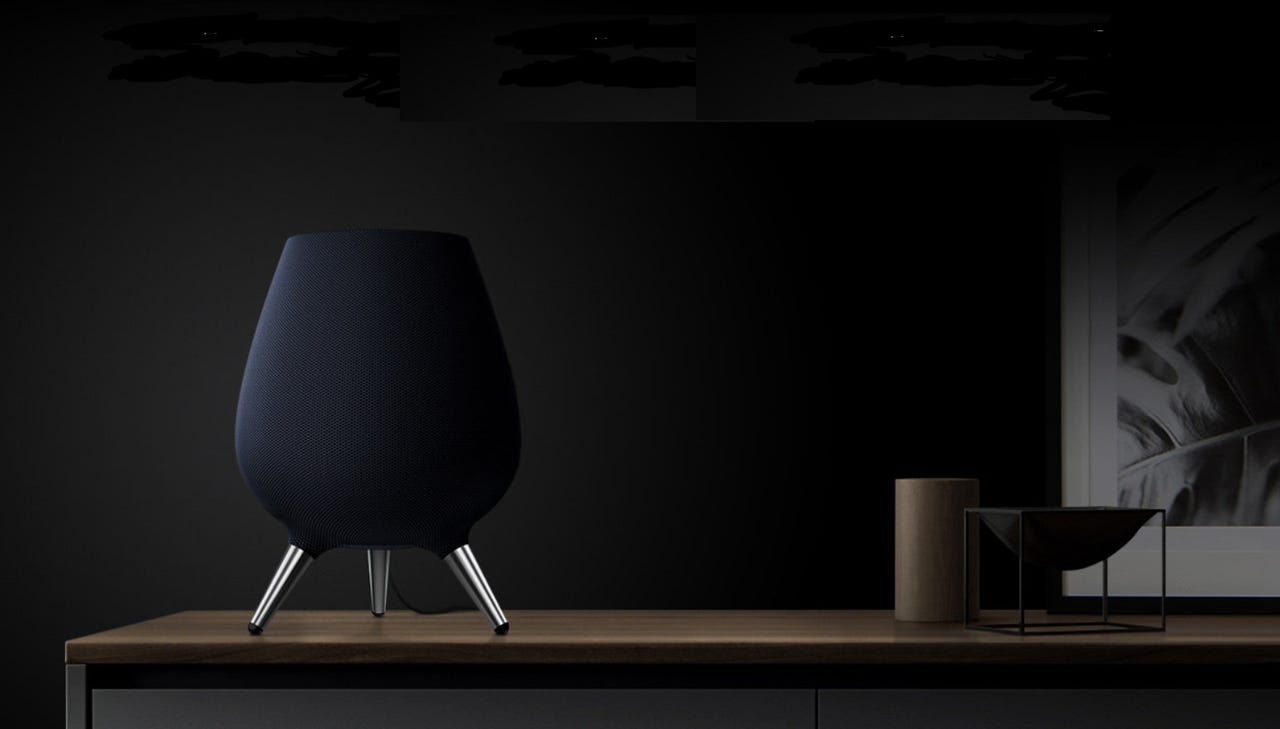Samsung's Bixby gets a little smarter


The Bixby-powered Galaxy Home speaker will launch in April, Samsung said.
Samsung Unpacked
Samsung's AI platform Bixby is still a minor player in the virtual assistant market, with just a fraction of the audience that Google, Amazon and Apple enjoy. Still, Samsung continues to invest in Bixby's capabilities and its reach. At the Galaxy S10 Unpacked event on Wednesday, Samsung announced that Bixby is now officially available in four new European languages. And speaking with ZDNet's sister site CNET, Samsung co-CEO DJ Koh on Wednesday said the Galazy Home -- a Bixby-powered smart speaker -- will finally launch in April.
"We are strongly committed to our AI business, and continuously expanding Bixby's intelligence capabilities to provide more users with the best possible AI experience," Eui-Suk Chung, Executive VP and Head of Software and AI, Mobile Communications Business for Samsung, said in a statement. "With the support of our partners and developers, Bixby will usher in the next generation of AI technology, and infuse more devices and services with intelligence."
It's easy to see why some may second-guess the promise of Bixby. A September survey of US adults showed that just 4 percent used Bixby on their smartphone, compared with 44 percent who used Apple's Siri and 30 percent who used Google Assistant.
While Bixby is far behind its competitors, the virtual assistant market is still growing quickly. Last week, the UK-based Juniper Research estimated there will be about 8 billion voice assistants in use in 2023, with a compound annual growth rate of 25.4 percent. While smartphone assistants will be the largest platform for virtual assistants by volume, Juniper says, smart TVs will be the fastest growing, with CAGR of 121.3 percent.
That should be good news for Samsung, which has already added Bixby to its TVs and plans to apply AI to all its home appliances by 2020. The Korean company sells more than 500 million devices every year. Its wide-ranging product portfolio, from TVs to refrigerators, are "essential building blocks for an AI-enabled ecosystem," Chung said in November at the Samsung Developer Conference.
Samsung has a three-point plan for transforming Bixby "from a simple mobile voice assistant to a scalable AI platform," Chung said at the Developer Conference. In addition to bringing Bixby to more devices, that includes opening the platform up to developers and expanding support for more languages.
With Wednesday's announcement Bixby is now officially available in eight languages. The new languages – British English, German, Italian and Spanish (Spain) – join the existing languages of US English, Korean and Mandarin Chinese. Full support for Bixby in the four new languages will be available on Samsung flagship devices, including the Galaxy S10, S10e, S10+ and S10 5G, as well as select previous flagship devices.
Additionally, Samsung said, users in select European markets can access select new third-party services with Bixby. Users in Germany, Italy, Spain and the UK will be able to use Bixby in their native language to search for flights, shop online, check soccer scores, or get TV program information.
During the S10 launch, Samsung also announced that Bixby users will be able to set routines, so phones can be managed better during certain times of the day.